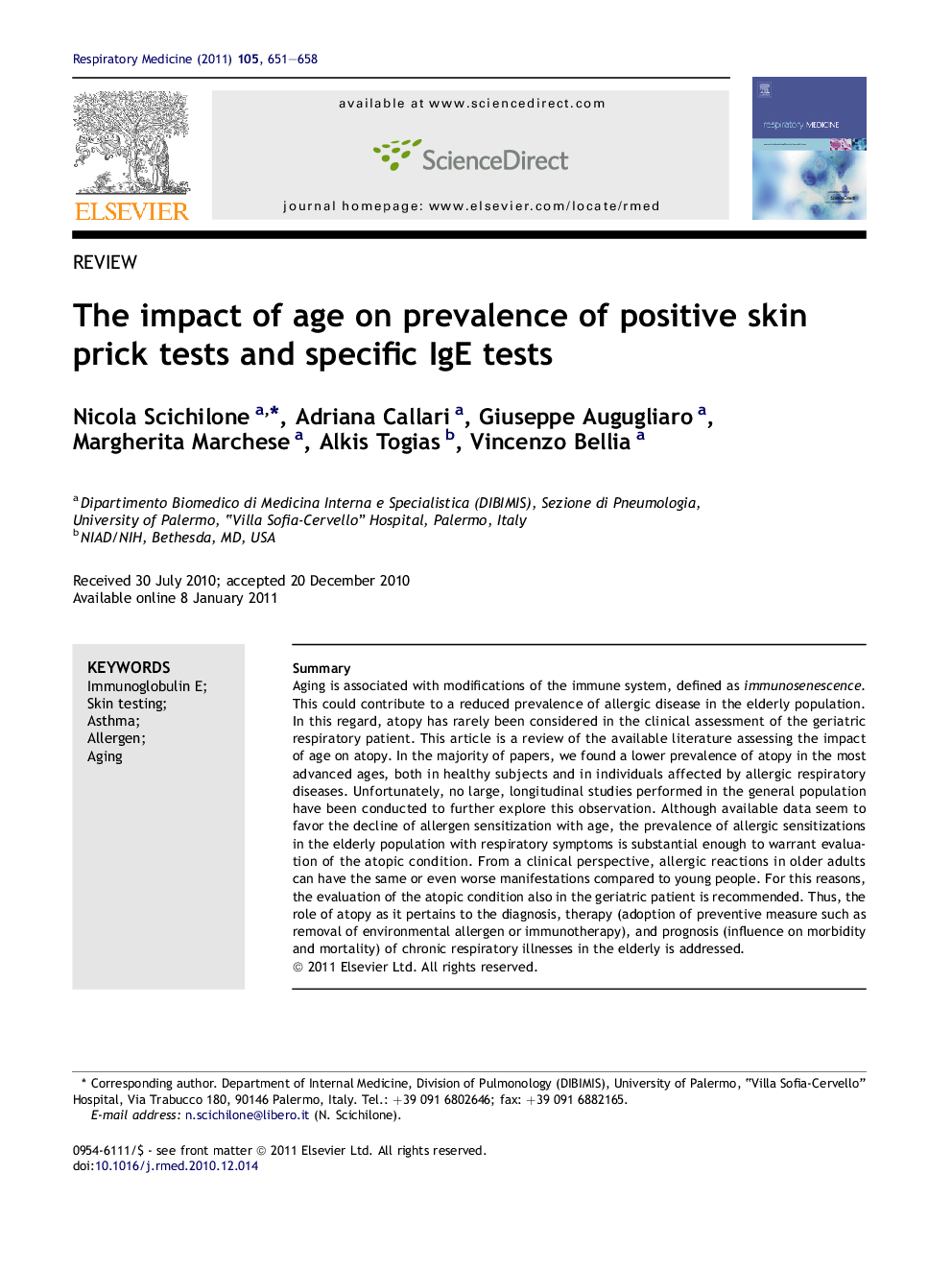| Article ID | Journal | Published Year | Pages | File Type |
|---|---|---|---|---|
| 4211001 | Respiratory Medicine | 2011 | 8 Pages |
SummaryAging is associated with modifications of the immune system, defined as immunosenescence. This could contribute to a reduced prevalence of allergic disease in the elderly population. In this regard, atopy has rarely been considered in the clinical assessment of the geriatric respiratory patient. This article is a review of the available literature assessing the impact of age on atopy. In the majority of papers, we found a lower prevalence of atopy in the most advanced ages, both in healthy subjects and in individuals affected by allergic respiratory diseases. Unfortunately, no large, longitudinal studies performed in the general population have been conducted to further explore this observation. Although available data seem to favor the decline of allergen sensitization with age, the prevalence of allergic sensitizations in the elderly population with respiratory symptoms is substantial enough to warrant evaluation of the atopic condition. From a clinical perspective, allergic reactions in older adults can have the same or even worse manifestations compared to young people. For this reasons, the evaluation of the atopic condition also in the geriatric patient is recommended. Thus, the role of atopy as it pertains to the diagnosis, therapy (adoption of preventive measure such as removal of environmental allergen or immunotherapy), and prognosis (influence on morbidity and mortality) of chronic respiratory illnesses in the elderly is addressed.
